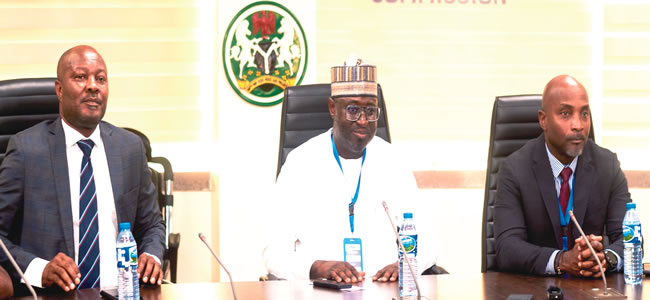Millions of Nigerians may face disruptions in mobile banking services from today, as banks scramble to meet the January 27, 2025, deadline to settle debts owed to telecommunications companies for Unstructured Supplementary Service Data (USSD) services. Telecom operators, following the Nigerian Communications Commission’s (NCC) directive, had threatened to disconnect the USSD platforms of defaulting banks, a move that could spark widespread inconvenience.
The NCC disclosed that nine banks collectively owe telecom operators a staggering N160 billion. The affected banks include Zenith Bank, United Bank for Africa (UBA), Wema Bank, Sterling Bank, Unity Bank, Jaiz Bank, Polaris Bank, Fidelity Bank, and First City Monument Bank (FCMB).
“Some banks have settled portions of their debts, while others are engaging in last-minute negotiations to avoid disconnection despite resisting earlier sanctions,” a top banker, speaking anonymously, stated.
Defaulting banks face the imminent risk of having their USSD platforms disconnected, which would leave millions of customers unable to perform essential banking transactions such as transferring money, paying bills, and checking balances.
The USSD platform has been critical in providing banking access, especially for rural populations with limited internet connectivity or smartphones.
For customers in remote areas where physical banking infrastructure is scarce, the potential disconnection would have devastating consequences, disrupting daily activities and businesses that rely heavily on seamless financial transactions.
Industry experts warned that the affected banks could suffer severe reputational damage and operational challenges. Disruptions to USSD services may erode customer trust and loyalty, pushing frustrated customers to switch to competitors offering uninterrupted services.
Banks that have complied with the payment directive are poised to gain a competitive advantage. Their customers will likely remain unaffected, further solidifying these institutions’ positions in the financial sector.
In an earlier intervention, the Central Bank of Nigeria (CBN) reduced the total USSD debt from N200 billion to N160 billion by directing banks to pay 85 percent of the outstanding amount. While some banks adhered to the directive, others failed to meet the payment deadline, prompting the NCC to initiate disconnection measures.
The NCC has emphasised the critical role of USSD services in advancing financial inclusion and urged banks to settle their debts promptly to avoid service disruptions.
The USSD debt crisis underscores unresolved issues in the collaboration between banks and telecom operators. Disputes over transaction fees and revenue-sharing agreements have caused recurring problems, threatening the stability of Nigeria’s mobile banking infrastructure.
If USSD services are disconnected, the economic ripple effects could be significant, particularly for businesses and households that depend on uninterrupted financial services.
Consumer advocacy groups, such as the National Association of Telecommunications Subscribers (NATCOMS), have voiced concerns over the potential fallout, especially in light of recent tariff hikes. NATCOMS argues that these hikes further burden subscribers without adequate consultation.
Nigeria’s financial sector, valued at over N150 trillion, has seen significant growth in recent years, with formal financial inclusion reaching 64% by 2023. USSD services have been instrumental in this progress, enabling millions of underserved Nigerians to access banking services.
Banks like Zenith Bank and GTBank have significantly expanded their customer base, with Zenith Bank recording over 33 million customers by the end of 2023. However, the ongoing debt crisis threatens to erode these gains, putting the sector’s progress at risk.
Financial experts have called for sustainable solutions to prevent future disputes over USSD fees. Proposals include developing a transparent revenue-sharing framework that balances the interests of banks, telecom operators, and consumers. Such a model could foster better collaboration and accountability among stakeholders.
As the January 27 deadline elapses, the outcome of this standoff will have far-reaching implications for Nigeria’s financial ecosystem. For millions of customers, the possibility of service disruptions serves as a sobering reminder of the importance of stakeholder collaboration in ensuring uninterrupted financial services.
Stakeholders believe that the resolution of this crisis will not only determine the future of mobile banking in Nigeria but also highlight the vital role of USSD services in driving financial inclusion and supporting economic growth. For now, all eyes remain on the banks and their ability to meet the NCC’s deadline, as the nation awaits a resolution to this critical issue.






